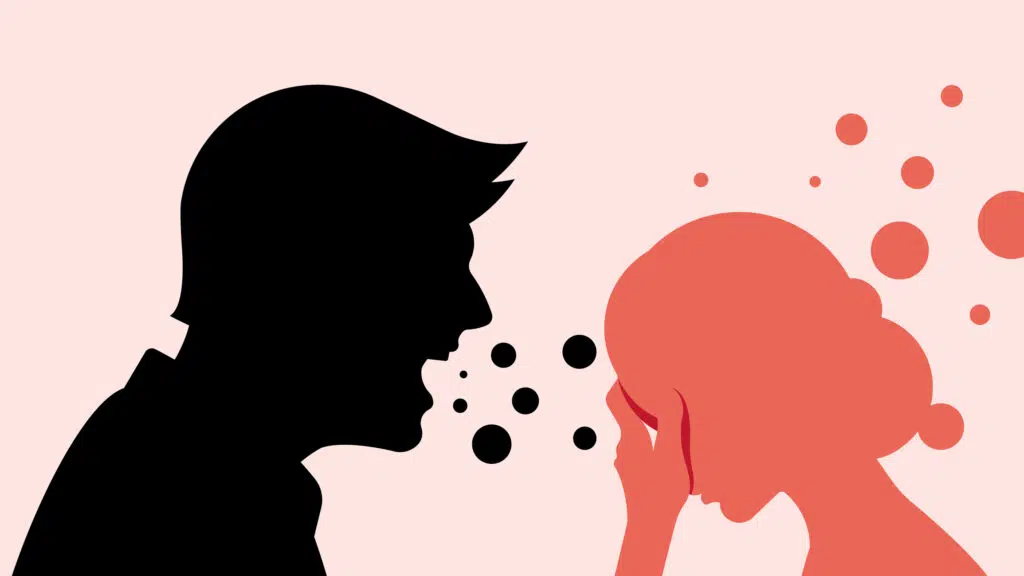How to Prevent Postpartum Depression

It’s normal to feel sad or down after having a baby. Between the tiredness and the stress of delivery, there’s so much going and your body is powering through a lot. But if this feeling doesn’t go away in a couple of weeks, it could be a sign of a serious mental illness. Learning how to prevent postpartum depression is important in reducing the risk of developing the condition and knowing when to get help.
What is Postpartum Depression?
Postpartum depression is a type of depression that comes after having a baby. It’s a common problem, with around 1 in 7 women developing postpartum depression.
Most new mothers experience what some call “baby blues” after childbirth. This includes mood swings, crying spells, sadness, and anxiety. These feelings can come from out of nowhere. Baby blues affect between 50-70% of people after delivery. The condition usually starts in the first week following delivery and eases off within two weeks with no treatment.
Unlike the baby blues, postpartum depression can last for several months and is a more serious condition that affects your brain and behavior. Symptoms of postpartum depression range from mild to severe, including:
- A feeling of loneliness, emptiness, and sadness
- May feel like you don’t love your baby all or most of the time
- Alternate between highs and lows
- Withdrawing from family and friends
- Tiredness, irritability, and anger
- Loss of appetite or eating more than usual
- Inability to care for yourself or your baby
Throughout pregnancy and childbirth, your body and hormones go through so many changes. Several factors can contribute to the development of postpartum depression, like:
- Hormonal triggers
- Tiredness from labor
- Stress
- Doubts about parenthood
- Unrealistic expectations of being a perfect parent
Research suggests that the most common risk factors of postpartum depression are high life stress, lack of social support, partner dissatisfaction, current or past abuse, and prenatal depression.
Estrogen and progesterone levels are dramatically higher during pregnancy before taking a nosedive after delivery. There are chemical, social, lifestyle, and psychological changes all happening.
It’s not just the birthing parent who can experience feelings of postpartum depression, but non-birthing parents. While non-birthing parents may not share the physical change of birth and delivery, they experience the lifestyle changes and stress of having a baby.
How Long Does Postpartum Depression Last?
Pregnancy and postpartum are a rollercoaster. Not only is your body undergoing huge hormonal adjustments, but you have a new tiny human in your house.
Postpartum depression can start between two weeks and twelve months after birth. Typically, the condition begins within the first three months, but there are cases where it takes longer to show.
People experiencing baby blues tend to recover relatively quickly, but those with postpartum depression take longer. The condition can majorly affect your ability to return to normal function. Some studies indicate that postpartum depression can last between three to six months. But there are patients within those studies still suffering from the condition beyond six months. Without treatment, postpartum depression can last for months or sometimes years.
How to Prevent Postpartum Depression
Postpartum depression isn’t completely preventable. Instead, it’s important to understand the signs and factors that could increase the risk of developing the condition. That way, you can take steps to reduce your chances of suffering from the mental health illness and understand the treatment that’s available.
- Avoid Major Life Changes Around the Birth
Having a baby is a big life change. Try to stick with just one big life shake-up at a time. If you can, avoid moving house, changing jobs, or any other big life decisions. Keeping your life the way it is means you can focus on having as stress-free a pregnancy as possible. Bringing life into the world and getting to terms with being a parent is stressful enough.
- Learn About Postpartum Depression
Learning about postpartum depression is an important part of pregnancy and childbirth. Whether you’re the birthing or non-birthing partner, it’s a good idea to educate yourself. You can then recognize the warning signs of postpartum depression and get help quickly when you need it.
Dr. Erika Updegrove, Psy.D., M.Ed., BCBA, a licensed clinical psychologist in New York, breaks down some of the signs to watch out for.
“I’ve heard not showering is a sign, but sometimes mothers don’t have time to shower. Not feeling like you can connect with your baby is a major sign, or when you feel your baby would be better off without you as their mother. Seek help immediately for your family member if that comes up. Softer signs are spending more time on your phone, dissociating, and checking out instead of interacting with your child. Also crying more frequently and having trouble sleeping.”
- Exercise
Research shows that exercise during pregnancy may reduce the risk of postpartum depression compared to inactivity. Physical activity can be a crucial factor in preventing depressive disorders in the postnatal period. Exercising can make you feel good, reduce stress, and release endorphins. Exercise can be as simple as a walk around the block with the stroller. It’s essential to listen to your healthcare provider for guidance on when you can start exercising more after having a baby.
- Sleep and Eat Well
Try to get enough sleep and eat nutritious food throughout pregnancy and during the postpartum period. Naturally, after the baby arrives, you will likely be short on time for both sleep and preparing food. So, be kind to yourself and do what you can. Sleep and diet are crucial for your health and well-being and will help to keep your body and mind healthy throughout the pregnancy.
- Surround Yourself with Support
Dr. Erika Updegrove says, “stay connected and join a “Mom Group” or talk to women who have recently had children.
Try to find your own rhythm. Everyone has advice, but not all of it is good. Go for walks when you are able. Also, postpartum depression can sneak up after the 4th trimester. Make sure to eat as consistently as you can and stay hydrated.”
It’s common to feel isolated after having a baby, especially if you’re the only one in your circle going through it. One platform that helps connect new moms is Peanut, where you can meet other women nearby and chat with them online. Your healthcare provider should be able to provide you with a list of groups in your local community you can join.
Social support is an important part of pregnancy. Research shows that social support is associated with a lower chance of developing postpartum depression. Make sure to ask for help when you need it and let others know how they can help. Don’t isolate yourself, and stay connected to friends and family.
- Prepare for Childbirth
Try to prepare for childbirth so you have an idea of what to expect. You should know the different outcomes that happen in the delivery room. By learning what can happen, you can hopefully limit the chances of having a traumatic childbirth experience if an emergency does occur.
Another way to prepare for childbirth is by enlisting help after your baby is born. Ask a friend to drop some groceries off for you and lean on your support system. Whether vacuuming or washing clothes, ask for help if you need it.
How The Thriving Center of Psychology Can Help with Postpartum Depression
If you’re wondering how to help your wife with postpartum depression, or a family member, it’s important to talk about the condition, be able to recognize warning signs and get help quickly.
Speaking to a therapist isn’t just for an emergency. You can actually talk to a therapist before and after having a baby.
“Therapy is great for breaking the veil of being a “bad mother.” It’s important to normalize the major life adjustment that comes with having a child and that a lot of mothers do not feel like they are perfecting motherhood. Mom guilt, birth trauma, and physical after-effects all need to be spoken about in a society that makes these conversations taboo outside of “Mom Circles.” Therapy is a great resource to speak about the feelings that underlie this major transition and change of identity.
It’s also important to know that depression can be temporary and the sooner you get treatment when you notice symptoms, the better the outcomes,” says Dr. Erika Updegrove.
If you’re worried about postpartum depression or would like to speak to a therapist about how to prevent postpartum depression as you go through a major life change, call our offices today or schedule an appointment. The team of compassionate therapists at the Thriving Center of Psychology use a range of innovative approaches to treat depression so that you can focus on moving forward with your new family.

Understanding Impostor Syndrome: Breaking Free from Self-Doubt
Imposter syndrome can make you feel like a fraud with no confidence in your abilities. You’re not alone; so many people feel like this. The good news is that you can break free from imposter syndrome and overcome self-doubt; here’s how.

Supporting a Loved One with Mental Illness: Practical Tips and Resources
There isn’t one perfect way to support a loved one with mental illness. How you care for someone will depend on you and the person you support. Mental illness can affect all aspects of a person, from mood to behavior. It can come as a shock when a loved one is diagnosed with a mental illness.

Is My Relationship One-Sided?
Do you feel like you’re doing all the work in a relationship? When a relationship is one-sided, it can create stress and conflict. If one partner invests more energy and effort to make the relationship work, it creates an imbalanced dynamic that can be draining in the long haul.

How To Recover From Burnout?
Manageable and short-term stress can increase alertness and give you the focus to hit a tight deadline. But left unchecked, chronic stress can result in burnout, leading to complete physical, mental, and emotional exhaustion.

